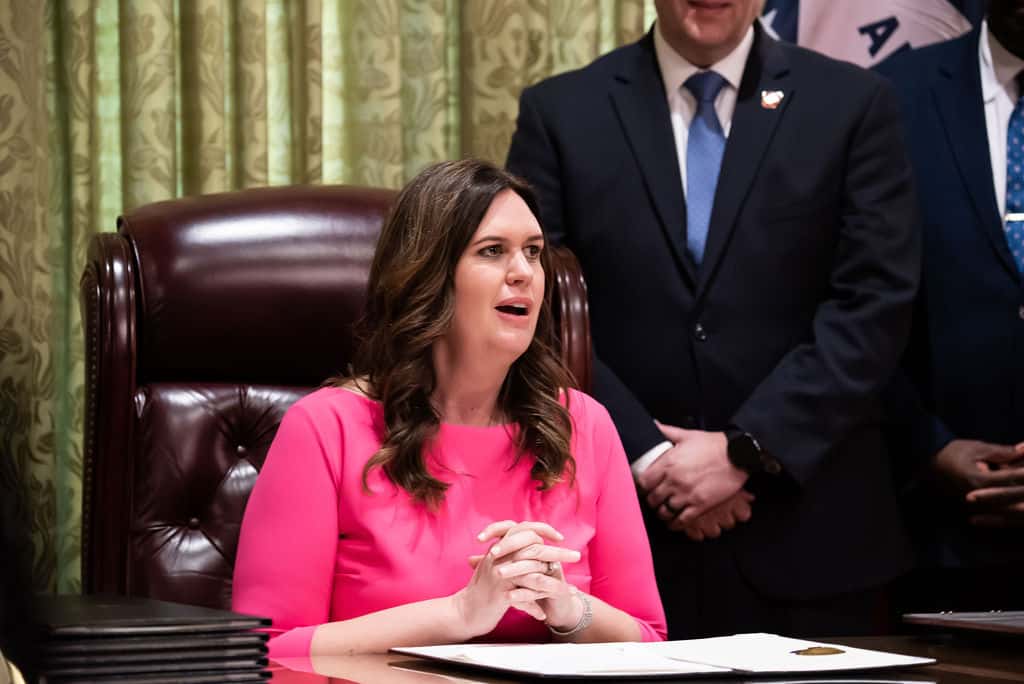In a wide-ranging interview on Conduit News, conservative commentator Daniel Horowitz, host of “Conservative Review” and senior editor at Blaze News, critiqued Arkansas’s Republican supermajority for falling short on key conservative priorities. Horowitz emphasized the potential for red states like Arkansas to address national issues at the local level, bypassing federal gridlock. He highlighted special interests, land usage battles, and immigration as areas ripe for state action, while praising some achievements but calling for bolder leadership akin to Florida’s model.
The discussion covered topics from medical freedom to green energy mandates, with Horowitz arguing that Arkansas’s overwhelming GOP control—81-19 in the House and 29-6 in the Senate—should make it a “political kill zone” for left-wing policies.
Key Topics:
Introduction and Horowitz’s Focus on State-Level Conservatism (00:00:09:08 – 00:02:51:21)
Horowitz introduced his work, stressing that while national politics often dominates headlines, many issues like medical freedom, fiscal conservatism, and anti-woke policies can be tackled effectively at the state level. “A lot of the things that ail us, aside from really foreign policy, can be dealt with at a state level,” he said. He criticized the federal GOP’s excuses for inaction, such as narrow majorities or judicial barriers, and urged Arkansas to “run up the score” on conservative wins given its Republican dominance.
Grading Arkansas’s Conservative Performance (00:03:55:20 – 00:05:51:19)
When asked to grade Arkansas on conservative policies, Horowitz gave the state a B-minus “grading on a curve” compared to other red states, but a D relative to Florida. He praised achievements like passing transactional gold legislation ahead of Florida, banning affirmative action, displaying the Ten Commandments in schools, and restricting cell phones in classrooms. However, he noted significant room for improvement on spending cuts, welfare reform, and blocking “Green New Deal” initiatives, which he said are “turbocharged” in red states.
Medical Freedom and Legislative Failures (00:05:51:19 – 00:09:57:06)
Horowitz lambasted Arkansas for failing to pass bills on medical freedom, such as removing fluoride mandates from water and eliminating vaccine requirements. He referenced SB6 by Rep. Brian King, which aimed to hold pharmaceutical executives accountable for concealing vaccine risks, as a model for national adoption. “We should be running up the score on medical freedom,” he said, pointing to conflicts of interest in committees like Senate Public Health, where chairs have ties to the healthcare industry.
Special Interests and Corporate Influence in Red States (00:09:57:10 – 00:12:38:02)
A recurring theme was the dominance of special interests like Tyson, J.B. Hunt, and Walmart, which Horowitz said override conservative principles. He explained why red states aren’t truly “red”: addiction to federal funding and outsized corporate sway. “The hospital systems, the university systems are often the biggest employers… and the legislators kind of knew the COVID stuff was wrong, but they didn’t stand up to it,” he noted. Horowitz called for exposing these influences to align politicians with public sentiment.
Need for Executive Leadership and Grassroots Pressure (00:12:38:04 – 00:20:35:01)
Horowitz stressed the role of governors in driving conservative agendas, praising Florida Gov. Ron DeSantis for using his “bully pulpit” against special interests. He rated Arkansas Gov. Sarah Huckabee Sanders in the “top five” Republican governors but urged her to be more proactive on issues like land grants and carbon capture. “You need governors that are more proactive,” he said, contrasting Sanders’ successes in school choice with missed opportunities on fiscal and cultural fronts. He advocated for broad pro-business policies over targeted corporate welfare.
Land Usage, Green Energy, and Data Centers (00:21:00:12 – 00:34:19:07)
In one of the interview’s most impassioned segments, Horowitz warned of an “assault on America’s heartland” through wind farms, solar projects, and data centers gobbling up land. He criticized Arkansas’s 2023 and 2025 legislation for enabling these, noting data centers consume more power and water than entire states while offering little in return. “If you cannot exist and thrive within the current natural framework… that is not capitalism,” he argued, urging moratoriums like those in some counties and rejecting incentives for crypto mining or wind farms that despoil landscapes.
Electing True Conservatives: Primaries, Caucuses, and Freedom Groups (00:34:45:15 – 00:44:41:04)
To combat establishment Republicans, Horowitz advocated for closed primaries to prevent Democratic crossovers, but went further, suggesting abolishing primaries in favor of conventions where activists vet candidates. He praised Freedom Caucuses in states like Wyoming and South Dakota for creating a “party within a party” to challenge special interests. “You need a core group of people… trial by fire,” he said, noting Wyoming’s Freedom Caucus transformed a “cesspool” legislature in two cycles.
State-Level Immigration Enforcement (00:45:03:04 – 00:50:15:03)
Horowitz called for Arkansas to criminalize illegal immigration and end magnets like public schooling for undocumented children, requiring photo IDs or tuition payments. He highlighted high foreign-born enrollment in districts like Benton County, blaming “greedy industries” for slave labor. “You need a permanent standing deterrent in Arkansas against illegal immigration,” he urged, to protect against future Democratic administrations reopening borders.
Encouragement for Arkansas Conservatives (00:50:54:10 – 00:56:03:09)
Closing on an optimistic note, Horowitz encouraged viewers by emphasizing state sovereignty. “The people want what we want. We just need to connect that to the political leadership,” he said, citing Florida’s transformation from a 50-50 state to a conservative stronghold. He argued Arkansas, with its Trump-plus margins, could create a “utopia for ordered liberty” by addressing national issues locally, from visas to green policies.



